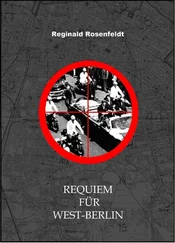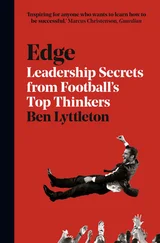Isaiah Berlin - Russian Thinkers
Здесь есть возможность читать онлайн «Isaiah Berlin - Russian Thinkers» весь текст электронной книги совершенно бесплатно (целиком полную версию без сокращений). В некоторых случаях можно слушать аудио, скачать через торрент в формате fb2 и присутствует краткое содержание. Год выпуска: 0101, Жанр: Старинная литература, на русском языке. Описание произведения, (предисловие) а так же отзывы посетителей доступны на портале библиотеки ЛибКат.
- Название:Russian Thinkers
- Автор:
- Жанр:
- Год:0101
- ISBN:нет данных
- Рейтинг книги:3 / 5. Голосов: 1
-
Избранное:Добавить в избранное
- Отзывы:
-
Ваша оценка:
- 60
- 1
- 2
- 3
- 4
- 5
Russian Thinkers: краткое содержание, описание и аннотация
Предлагаем к чтению аннотацию, описание, краткое содержание или предисловие (зависит от того, что написал сам автор книги «Russian Thinkers»). Если вы не нашли необходимую информацию о книге — напишите в комментариях, мы постараемся отыскать её.
Russian Thinkers — читать онлайн бесплатно полную книгу (весь текст) целиком
Ниже представлен текст книги, разбитый по страницам. Система сохранения места последней прочитанной страницы, позволяет с удобством читать онлайн бесплатно книгу «Russian Thinkers», без необходимости каждый раз заново искать на чём Вы остановились. Поставьте закладку, и сможете в любой момент перейти на страницу, на которой закончили чтение.
Интервал:
Закладка:
designed to show the insignificance of Napoleon or Tsar Alexander,
or of the aristocratic and bureaucratic society in Anna Kartnina, or of
the judges and official persons in Resurrection; or again, the emptiness
and intellectual impotence of historians and philosophers who try to
explain events by employing concepts like 'power' which is attributed
to great men, or 'influence' ascribed to writers, orators, preacherswords, abstractions which, in his view, explain nothing, being themselves far more obscure than the facts for which they purport to account. He maintains that we do not begin to understand, and therefore cannot explain or analyse, what it is to wield authority or strength, to influence, to dominate. Explanations that do not explain are, for
Tolstoy, a symptom of the disruptive and self-inflated intellect, the
faculty that destroys innocence and leads to false ideas and the ruin of
human life.
That is the strain, inspired by Rousseau and present in early
romanticism, which inspired primitivism in art and in life, not in
Russia alone. Tolstoy imagines that he and others can find the path
to the truth about how one should live by observing simple people, by
the study of the gospels.
His other strain is the direct opposite of this. Mikhailovsky says,
,,
251
R U S S IAN T HINKERS
with justice, that Olenin cannot, charmed as he is by the Caucasus
and the Cossack idyll, transform himself into a Lukashka, return to
the childlike harmony, which in his case has long been broken. Levin
knows that if he tried to become a peasant this could only be a grotesque
farce, which the peasants would be the first to perceive and deride; he
and Pierre and Nikolay Rostov know obscurely that in some sense
they have something to give that the peasants have not. Tolstoy tells
the educated reader that the peasant
needs what your life of ten generations uncrushed by hard labour
has given you. You had the leisure to search, to think, to sufferthen give him that for whose sake you suffered; he is in need of it • . .
do not bury in the earth the talent given you by history . . .
Leisure, then, need not be merely destructive. Progress can occur: we
can learn from what happened in the past, as those who lived in that
past could not. It is true that we live in an unjust order. But this
itself creates direct obligations. Those who are members of the
civilised elite, cut off as they tragically are from the mass of the people,
have the duty to attempt to re-create broken humanity, to stop
exploiting them, to give them what they most need-education, knowledge, material help, a capacity for living better lives. Levin in A""a Karmi,a, as Mikhailovsky remarks, takes up where Nikolay Rostov
in War anti Ptact left off. They are not quietists, and yet what they
do is right. The emancipation of the peasants, in Tolstoy's view,
although it did not go far enough, was nevertheless an act of willgood-will-on the part of the government, and now it is necessary to teach peasants to read and write and grasp the rules of arithmetic,
something which they cannot do for themselves; to equip them for
the use of freedom. I cannot merge myself with the mass of peasants;
but I can at least use the fruit of the unjustly obtained leisure of
myself and my ancestors-my education, knowledge, skills- for the
benefit of those whose labour made it �ible.
This is the talent I may not bury. I must work to promote a just
society in accordance with those objective standards which all men,
except the hopelessly corrupt, see and accept, whether they live by
them or not. The simple see them more clearly, the sophisticated
more dimly, but all men can see them if they try; indeed to be able
to see them is part of what it is to be a man. When injustice is perpetrated, I have an obligation to speak out and act against it; nor may artists any more than others sit with folded hands. What makes good
252

TOLSTOY AND E N L I G HTENMENT
writers good is ability to see truth-social and individual, material and
spiritual-and so present it that it cannot be escaped. Tolstoy holds
that Maupassant, for example, is doing precisely this, despite himself
and his aesthetic fallacies. He may, because he is a corrupt human
being, take the side of the bad against the good, write about a worthless
Paris seducer with greater sympathy than he feels for his victims. But
provided that he tells the truth at a level that is sufficiendy profoundand men of talent cannot avoid doing this-he will face the reader with fundamental moral questions, whether he means to do this or not,
questions which the reader can neither escape nor answer without
rigorous and painful self-examination.
This, for Tolstoy, opens the path to regeneration, and is the proper
function of art. Vocation-talent-is obedience to an inner need: to
fulfil it is the artist's purpose and his duty. Nothing is more false than
the view of Pie artist as a purveyQr, or a craftsman whose sole function
it is to create a beautiful thing, as Flaubert, or Renan, or Maupassantl
maintain. There is only one human goal, and it is equally binding on
all men, landowners, doctors, barons, professors, bankers, peasants: to
tell the truth, and be guided by it in action, that is, to do good, and
persuade others to do so. That God exists, or that the Iliad is beautiful,
or that men have a right to be free and also equal, are all eternal
and absolute truths. Therefore we must persuade men to read the Iliad
and not pornographic French novels, and to work for an equal society,
not a theocratic or political hierarchy. Coercion is evil; men have
always known this to be true; therefore they must work for a society
in which there will be no wars, no prisons, no executions, in any
circumstances, for any reason; for a society in which individual
freedom exists to the maximum degree. By his own route Tolstoy
arrived at a programme of Christian anarchism which had much in
common with that of the Russian populists, with whom, but for their
doctrinaire socialism, and their beliefin science and faith in the methods
of terrorism, Tolstoy's attitude had much in common. For what he
now appeared to be advocating was a programme of action, not of
quietism; this programme underlay the educational reform that he
1 Tolstoy is moved to indignation by Maupa.ssant's celebrated dictum
(which he quotes) that the business of the artist is not to entertain, delight,
move, utonish, cause his reader to dream, reflect, smile, weep, or shudder,
but (ft�irt J rjulf•t t:Aost tie 6tt�• tlt�fll '" jof'fllt 9•i rJfJMI t:Oflrlitfltlr" It fllin3t t1' .pns rJOirt ltfllplrt�flltfll.
..
253
R U SSIAN T H INKERS
attempted to carry out. He strove to discover, collect, expound eternal
truths, awaken the spontaneous interest, the imagination, love,
curiosity of children or simple folk; above all to liberate their 'natural'
moral, emotional and intellectual forces, which he did not doubt, as
Rousseau did not doubt, would achieve harmony within men and
between them, provided that we eliminate everything that might maim,
cramp and kill them.
This programme-that of making possible the free self-development
of all human faculties-rests on one vast assumption: that there exists
at least one path of development on which these faculties will neither
conflict with each other, nor develop disproportionately-a sure path
Читать дальшеИнтервал:
Закладка:
Похожие книги на «Russian Thinkers»
Представляем Вашему вниманию похожие книги на «Russian Thinkers» списком для выбора. Мы отобрали схожую по названию и смыслу литературу в надежде предоставить читателям больше вариантов отыскать новые, интересные, ещё непрочитанные произведения.
Обсуждение, отзывы о книге «Russian Thinkers» и просто собственные мнения читателей. Оставьте ваши комментарии, напишите, что Вы думаете о произведении, его смысле или главных героях. Укажите что конкретно понравилось, а что нет, и почему Вы так считаете.










